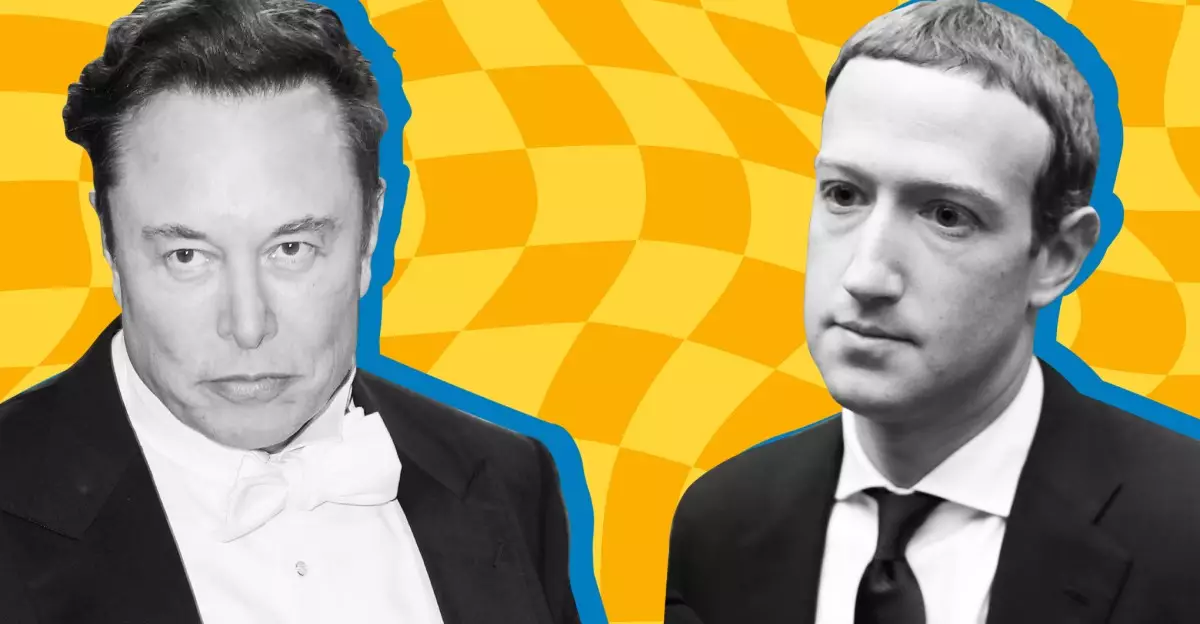The recent incident where AI-cloned voices of Elon Musk and Mark Zuckerberg have taken over the crosswalks of various California cities serves as a captivating reflection on the intersection of technology, culture, and humor. This unusual case is not merely about changing voices; it exposes a societal craving for satire, especially aimed at the controversial figures who dominate the tech landscape. What makes this event particularly intriguing is how artificial intelligence has been wielded as a tool for parody, casting a spotlight on the absurdities of the very tech moguls whose innovations have dramatically altered our lives. It is a humorous yet thought-provoking commentary on the ethical implications of technological advancements.
Rather than mere prankster antics, this situation symbolizes a growing trend where technology is both embraced and lampooned. In cities like Palo Alto, Redwood City, and Menlo Park, the crosswalk buttons—designed primarily for the visually impaired—were hijacked to deliver comedic quips that fake their signatures. This unintended use of advanced AI raises critical questions about consent, privacy, and the boundaries of innovation. Is it amusing or alarming that we can so easily manipulate our leaders’ likenesses and voices?
The Satirical Impact
In a series of recordings posted online, listeners have been both bemused and bewildered by the faux voices delivering absurdist lines as if they were straight from a comedy sketch. The Musk impersonation, reviewed in detail, includes lines that touch on everything from existential loneliness to tongue-in-cheek reflections on wealth and happiness. Meanwhile, the Zuckerberg voice cheerfully boasts about “undermining democracy” and “cooking our grandparents’ brains with AI slop,” showcasing how satire blurs the lines between criticism and humor.
The brilliance of this move, whether unintentional or carefully orchestrated, lies in its ability to generate a conversation around the roles these tech leaders play in our daily lives. By replacing standard crosswalk directives with comedic yet poignant commentary, these voices become more than mere jokes; they evolve into a vehicle for critique. Ingeniously, the comedy distills complex societal issues into digestible snippets that resonate with the public. In a landscape where the developers of AI technology often take themselves seriously, this humorous interruption serves as a breath of fresh air.
The Ethical Dilemma of AI Voices
Despite its humor, this incident isn’t without ethical ramifications. While it appears harmless on the surface, the manipulation of public figures’ voices can ignite conversations about the sanctity of one’s image and the potential for misuse. What happens when the line between parody and misinformation is crossed? If an AI can convincingly imitate influential figures, how easy is it for individuals to use this technology for nefarious purposes? The ease with which these hackers implemented the changes serves as a sobering reminder of the vulnerabilities inherent in our increasingly digital world.
Moreover, this event can be seen as a dystopian teaser, hinting at a future where AI-generated content becomes indistinguishable from reality. The implications extend beyond mere amusement—how can society protect itself from malicious usages of AI that could disrupt lives, politics, or even relationships? The recent incident raises these queries, emphasizing that while we delight in advancing technology, we must remain aware of its potential pitfalls.
A New Form of Public Engagement
The creativity displayed in these hacked messages also transforms them into an unexpected form of public engagement. People now interact with technology in ways far removed from its intended purpose—with laughter, curiosity, and perhaps even critique. This reflects a shift in how tech companies are perceived. Once seen solely as titans of progress, they now stand vulnerable to public scrutiny and mockery, their flaws exhibited in these AI parodies.
Interestingly, these instances could signal a turning point wherein public figures must adapt to the narrative being spun around them. As AI continues to evolve, the responsibility lies not just with the tech companies but also with society at large. Will we embrace tools for humor and critique or allow them to slip into dangerous territories? The answers may culminate in an ongoing dialogue about power, representation, and freedom of expression, encapsulating a world where technology’s reach could feel both liberating yet confining.
With all this said, it’s clear that while this instance offers much to chuckle at, it ultimately serves as a pressing reminder of the intricate relationship we share with technology and those who shape it. The line between absurdity and reality may seem comical today, but the discussions it ignites are pivotal for the future of both technology and society.

